The planning and delivery of High Speed 2 moves on in leaps and bounds almost every day. Progress is extensive, but Tom Kelly, the project’s strategic communications director, is anxious for the rail industry not to get ahead of itself.
“Parliament is still considering our Hybrid Bill. While much progress has been made, we cannot take it for granted,” Kelly told delegates at RAIL’s National Rail Conference in Leeds, on November 5.
His optimism could not be concealed entirely though: “Even though we can’t say with absolute certainty that it’s not a case of ‘if’ but of ‘how’, we’re near the point where we’ll be able to do so.”
Kelly explained further: “You bank progress as you go along. You solve problems one by one. You maintain momentum towards that final goal at all costs. Sometimes that process can be reasonably straightforward – steady and linear. Sometimes it resembles more of a stumble. But the key is to it keep moving forward, however slowly. During the last 12 months HS2 has made progress and we’ve built on it as we’ve gone along. So far, so good.
“But one thing I’ve learnt over many years - and many stumbles - is that when you’re trying to carry out a major project, the biggest danger is yourself. You can get ahead of yourself both individually and collectively. The sheer size and complexity of HS2 remains absolutely awe-inspiring. And that’s why, to ensure success, we’ve remained dependent on local stakeholders.”
It is widely accepted that one of the keys to maintaining that focus is collaborating with others to achieve the common goal. The involvement of stakeholders at every stage is vital to every project, regardless of its size.
Kelly made this point: “Just as HS2 isn’t a standalone project in transport terms, so HS2 Ltd cannot deliver HS2 on its own. It needs to work with many others.”
He surprised the audience by praising the work of individuals normally forgotten, or viewed with an element of disdain: “We will be forever in the debt of the hardworking MPs who serve in the Select Committee hearing petitions. It’s a mammoth task. But they’re steadily and quietly getting on with the job, working their way through the Phase 1 route. Their professionalism, their commitment, along with that for our staff who have handled the process, has been, in my mind, hugely impressive.
“So too has been one other development - the maintenance of the bipartisan approach across Government and the opposition, and of local government, North and South, East and West. And the advantages of continuity that come from having a Secretary of State who transitions from one administration to another are enormous. As too are the advantages of having a Shadow Secretary who has followed the brief for some time. We haven’t had to go through the whole re-education process.”
But Kelly was also keen to point out that the commitment of MPs to the project has had far more wide-reaching benefits: “This continuity at Parliamentary level has also reflected another positive development in the past 12 months. HS2 is increasingly seen as important for infrastructure in general, and regarded by local government as beneficial.
“As a nation we’re beginning to think more analytically about our infrastructure needs. But we’re also thinking on a local level, making sure we maximise the benefits for local economies. And the establishment of the National Infrastructure Commission, chaired by Lord Adonis, opens the door to a more consistent infrastructure in this country. Whether that’s in transport, energy (in which I have an interest), or with climate change or broadband.”
Kelly went on to explain the benefits of that local government involvement:
“Equally, the establishment of Transport for the North brings closer the Northern Powerhouse vision. A launch I attended a few weeks ago in Derby, with Midlands Connect, will bring forward the day when the East and West Midlands begin to act as one region, rather than the historically loose alliance it has been. The same goes for HS2 and the cities down the East side of the country, from Newcastle southwards. And the encouraging coalescence we’ve seen in the North West involving Crewe and Stoke is unprecedented.”
The involvement of local bodies making specific decisions for their region is a relatively new concept, and one that Kelly is particularly pleased about:
“For the first time we are actually beginning to see how the pieces of the jigsaw fit together at national, local and regional level.
“Gone are the days when every piece was expected to be uniform, and hammered into place by the heavy hand of Westminster. For me, the most interesting and frankly inspiring moments in the past year have been watching and listening to local authority leaders based in the East Midlands, Leeds and Crewe, sit down and talk through how to integrate HS2 into their ambition for their local economies.
“For them it definitely is not ‘if’, but ‘how’ and ‘when’. And the ‘when’ has gained a sense of urgency. That’s true from Camden all the way up the line.”
Kelly chooses to cite Camden for a good reason. From a stance of total resistance, Camden has shifted to planning how to make the most of the opportunity for the area if the project goes ahead (HS2 Matters, RAIL 788).
With even the strongest opposition beginning to change its stance, is everything on the project starting to look rosy?
Kelly tackles this: “Given that positive backdrop what could possibly go wrong? The answer is plenty. We have to go through the complete Parliamentary process for Phase 1, and that will take another year. We also have to finalise the route for Phase 2 and then guide that through Parliament. And then there’s the construction itself, which will suddenly seem a lot closer in 2016.
“But there’s one other caveat I keep at the back of my mind, and it’s this: the public is not hostile to HS2. If you explain how it can help to re-balance the economy, you’ll discover there’s a lot of support.
“Naturally there are lots of questions. People are keen to see the jobs and skills creation both for the existing workforce and for future workforces. Generally, people also believe that in 20 years’ time people will say ‘of course it made sense’. Just as we now think the M25 makes sense. The Jubilee Line makes sense. Even the M6 - on a good day - makes sense.
“But people don’t think we’ll be able to deliver it on time and within budget. And that’s not HS2-specific - that’s the public’s perception of big infrastructure projects in general.”
It’s true that infrastructure projects don’t have a good reputation. Seeing is believing, as the saying goes. And until people see progress, quantifying the benefits will be difficult.
Says Kelly: “So what does all this mean for the next year? Firstly, we must continue to present HS2 in the wider context of the need to re-balance the British economy, both by sector and by geography. It also means that we must do much more to translate that into terms that communities and individual families can relate to. ‘What does it mean for my region? What does it mean for my town? What does it mean for my community?’
“It isn’t set in stone that successful graduates in the Midlands and the North have to go to London to pursue a successful career. Nor is it a foregone conclusion that young families will have to move out of London because of ever-increasing house prices. We have to demonstrate, in practical terms, how HS2 can help change that by creating jobs throughout the country, and a better quality of life.
“We have to challenge this fatalistic attitude which has, for too long, dictated that things ‘are not possible’. And we have to do that by working with local Government, local business, Network Rail, the rail industry in general and Highways England. We have to show that the Midlands and the North can enjoy the kind of connectivity that London takes for granted. And that will mean collaboration of the highest order.”
However, Kelly knows that collaboration is not the only key to success.
“We have to have much more meaningful dialogue, not just with the rail industry, but the infrastructure industry in general, about how we deliver big projects such as HS2 in this country. Historically, the ad hoc way in which projects are initiated, debated and then committed to has resulted in a fragmented approach.
“We keep trying to re-invent the wheel. And, in part, that’s because of the stop-go nature of our decision-making and budgeting processes. Too often has the decision to proceed merely sparked another round of debate. And too often has the approach to cutting budgets undermined the outcome of a project.”
Ultimately, it all comes down to clarity of vision - the need to keep the overall goal, that ‘bigger picture’, in mind all the time. And this is something Kelly has thought a lot about: “We need to be clear, both about our objective and the need to keep to that objective. In the case of HS2, the objective is to re-balance the economy by adding capacity and improving connectivity. That’s a different objective from that of many other high-speed lines in other countries, which are more focused on simply improving journey times from one point to another.
“Our objective is broader. Hence HS2 will not just go to Birmingham, Manchester and Leeds, but also have regional hubs at Crewe, the East Midlands and South Yorkshire. Only by doing that can the strategic objective of re-balancing Britain be achieved.
“We have to be clear about the objective. But we also have to be clear about the context within which the project is placed.
“Not only is our objective different from many other high-speed lines, so too is the existing infrastructure it must interface with. Our Victorian legacy has served this country and this industry well. What it didn’t bless us with, however, was wide station fronts. So whereas European high-speed lines can run through some stations on existing lines, we will have to construct our own.
“So, we can’t change our objectives, and we can’t change the physical aspect. But we can change the way we deliver such projects. And I hope the National Infrastructure Commission will focus as much on that as on what projects this country needs, and in what order. I’m conscious that with HS2 we have a unique opportunity. We can use the complexity and the longevity of our task to address many of the issues that have hampered infrastructure in general in this country.
“Those issues relate directly to the ad hoc, fragmented approach I spoke of earlier. Can we, in HS2 and more generally in infrastructure in this country, use the huge deal of work that has to be delivered over the next 20 to 30 years to streamline our processes and drive innovation, to make that infrastructure cutting edge?”
Making that happen hinges on whether focus on the ‘big picture’ can be achieved – and then maintained. As Kelly eloquently illustrated in his closing comments:
“It’s a balancing act. You have to keep an eye on the ‘big picture’ but not lose sight of the details. If you just stay in the big picture you lose sight of the realities, and there’s the danger of losing credibility as you’re overcome by adverse events. If you just stay focused on the detail you lose sight of not just what you’re doing but why. People then begin to question its rationale. We have to keep both of these things in perspective: the ‘big picture’ provides the ‘why’, and the detail answers the ‘how’. That’s the phase we’re now entering.
“People are now questioning less the ‘if’ about HS2 and more the ‘how’. Can we deliver it efficiently and effectively? That’s the test it must pass. Not just for the sake of HS2, but the infrastructure industry in general. It’s down to HS2 to restore the confidence of the British public, to prove that not only can this country deliver big projects, but it can deliver them well.
“We need to show the public that not only should they be proud of the ‘why’ and the ‘what’ we’re doing, but also ‘how’. That, in turn, will give the public, Parliament and our stakeholders, the confidence to attempt more. That’s our challenge for the next year.”
- This feature was published in the HS2 supplement of RAIL 789 (December 9 2015)

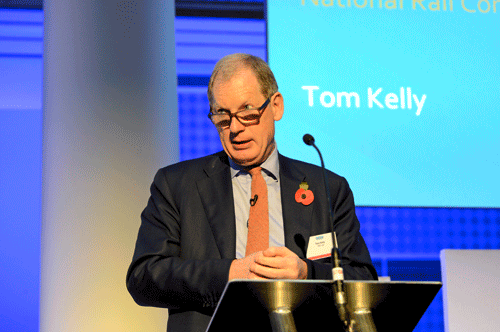
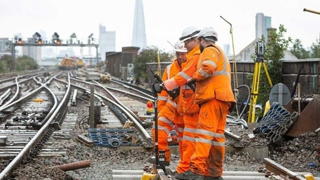
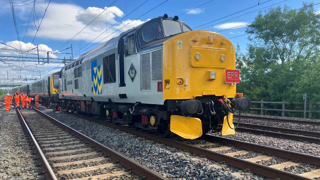
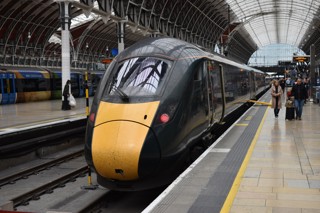
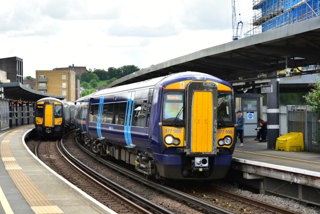
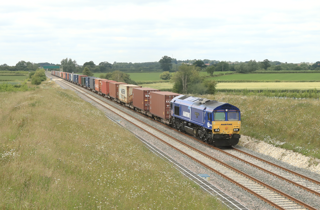










Login to comment
Comments
No comments have been made yet.